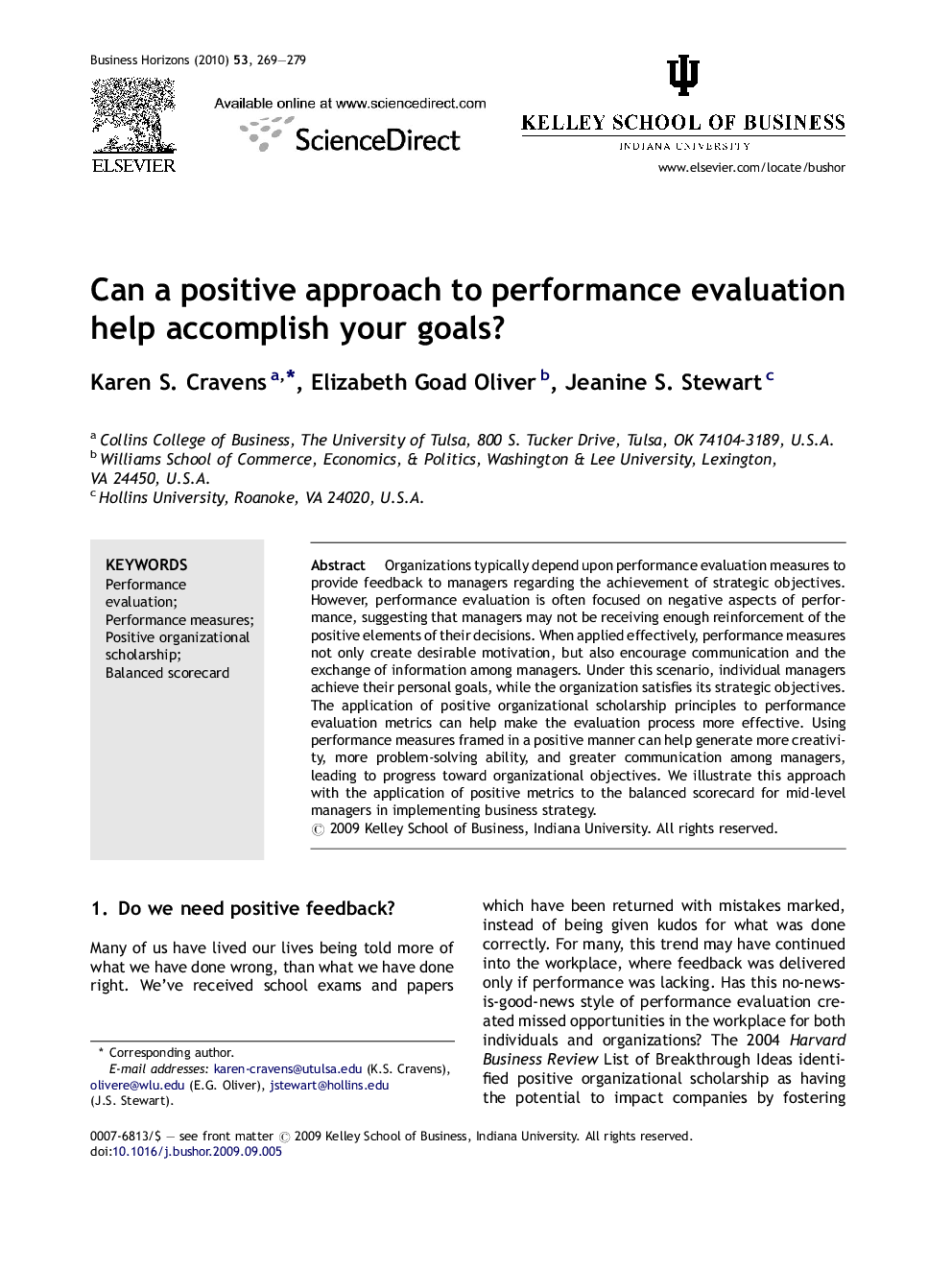| Article ID | Journal | Published Year | Pages | File Type |
|---|---|---|---|---|
| 1014415 | Business Horizons | 2010 | 11 Pages |
Organizations typically depend upon performance evaluation measures to provide feedback to managers regarding the achievement of strategic objectives. However, performance evaluation is often focused on negative aspects of performance, suggesting that managers may not be receiving enough reinforcement of the positive elements of their decisions. When applied effectively, performance measures not only create desirable motivation, but also encourage communication and the exchange of information among managers. Under this scenario, individual managers achieve their personal goals, while the organization satisfies its strategic objectives. The application of positive organizational scholarship principles to performance evaluation metrics can help make the evaluation process more effective. Using performance measures framed in a positive manner can help generate more creativity, more problem-solving ability, and greater communication among managers, leading to progress toward organizational objectives. We illustrate this approach with the application of positive metrics to the balanced scorecard for mid-level managers in implementing business strategy.
